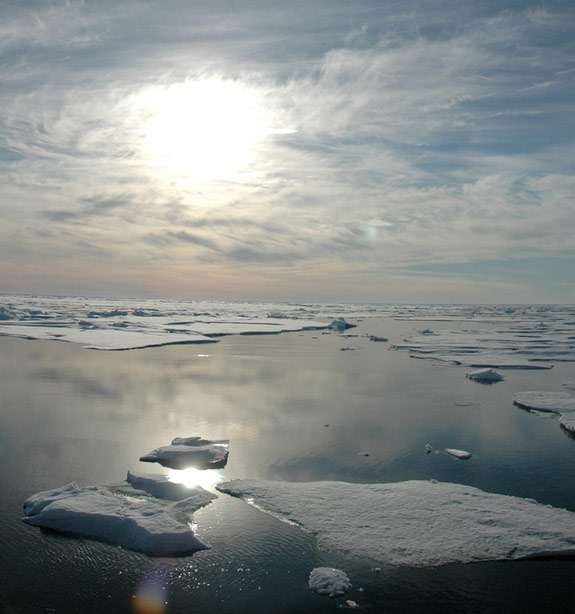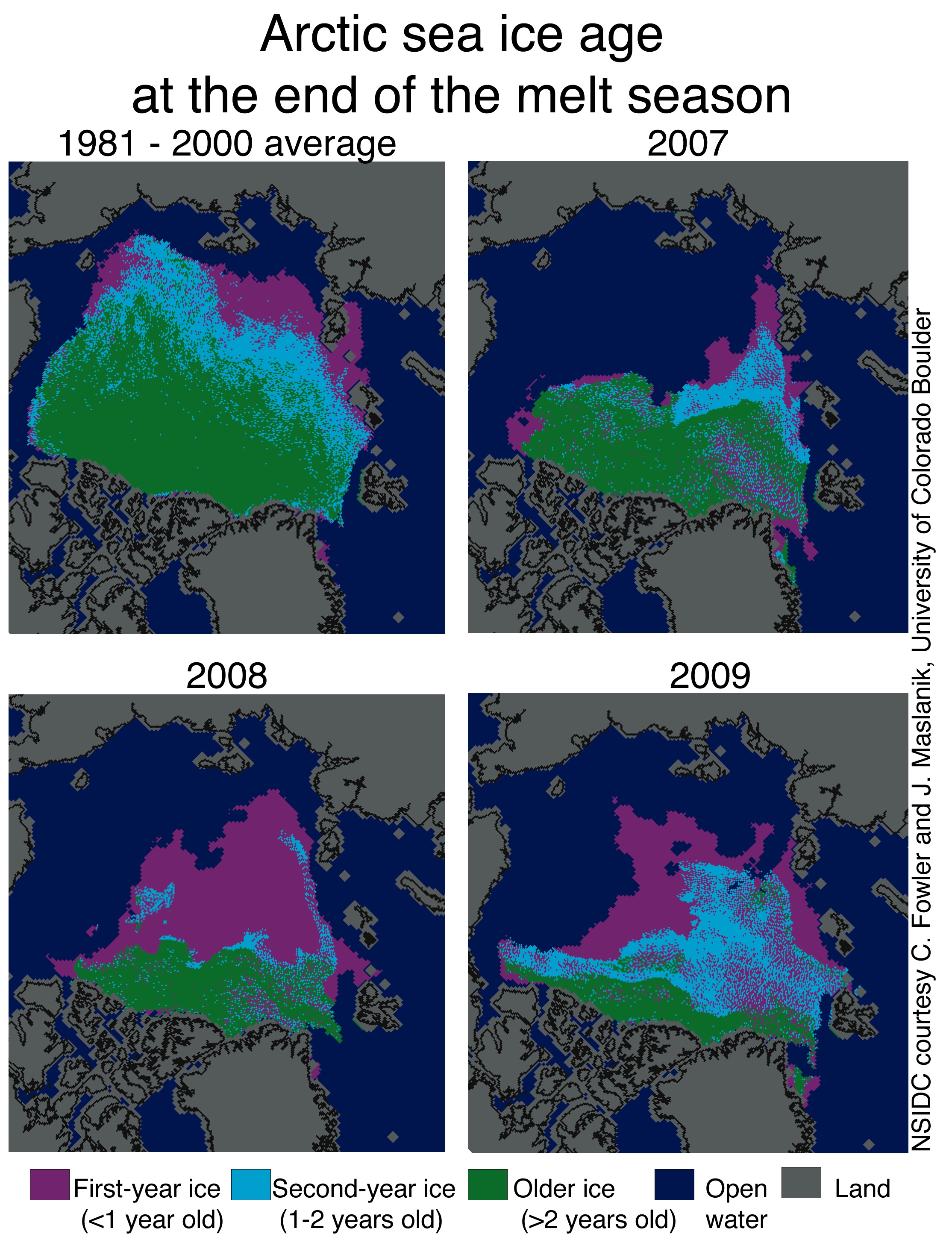
Say Goodbye to Arctic Summer Ice

By the time today's babies graduate college, there's a very good chance they could celebrate with a cruise across the North Pole.
That's according to the latest study on Arctic summer sea ice, the frozen pack that lingers through the Northern Hemisphere summer. In past decades, there's been less summer ice, and it's growing thinner.
The research, published online Feb. 21 in the journal Geophysical Research Letters, says major sea ice loss could come within a decade or two, though some ice will stick around near Greenland and Canada's Arctic islands.
The results come from analyzing different approaches to predicting Arctic sea-ice melt. Researchers James Overland, of the National Oceanic and Atmospheric Administration, and Muyin Wang, of the University of Washington, looked at three common modeling techniques to come up with the best forecast for when the Arctic will be ice-free in the summer.
"There is no one perfect way to predict summer sea ice loss in the Arctic," Wang said in a statement. "So we looked at three approaches that result in widely different dates, but all three suggest nearly sea ice-free summers in the Arctic before the middle of this century," she said.
Here are brief descriptions of the three modeling styles the study takes on:
- Models relying on past sea ice trends, or changes in total amount of sea ice, predict a nearly ice-free Arctic by 2020.
- A more stochastic approach, which incorporates random large sea-ice melting events, like the big ice losses in 2007 and 2012. This model suggests the Arctic could be ice-free by 2030.
- The climate modelers, who rely on global climate information to gauge Arctic warming, estimate sea-ice loss will hit around 2060. This is likely too slow, Overland and Wang report in their study.
No matter the model, it's reasonable to conclude that a nearly ice-free Arctic summer will very likely occur before 2050, and possibly by 2025 or 2035 (in a decade or two), Overland and Wang said in the study.
Get the world’s most fascinating discoveries delivered straight to your inbox.
Less Arctic summer ice will have global impacts, from opening shipping lanes and exploration for resources such as oil and gas to further warming the Arctic by exposing more ocean to the sun's warmth (open ocean absorbs the sun's rays, while ice reflects them). Arctic warming is also changing the jet stream's pattern, with steeper waves that bring extreme weather to lower latitudes, studies show.
"Rapid Arctic sea ice loss is probably the most visible indicator of global climate change; it leads to shifts in ecosystems and economic access, and potentially impacts weather throughout the Northern Hemisphere," Overland said in a statement.
Email Becky Oskin or follow her @beckyoskin. Follow us @OAPlanet, Facebook or Google+. Original article on LiveScience's OurAmazingPlanet.

 Live Science Plus
Live Science Plus






